A cabin air filter in a 2003 Toyota Tacoma ensures a clean and healthy interior environment by filtering out dust, pollen, and pollutants from the air circulated through the HVAC system, enhancing comfort and well-being for occupants during drives.
Purpose of Cabin Air Filters in Vehicles
Cabin air filters are designed to clean the air that enters the vehicle’s interior through the heating, ventilation, and air conditioning (HVAC) system. By capturing dust, they are essential in enhancing air quality. Pollen, pollutants, and other airborne particles before they reach the cabin.
Evolution of Cabin Air Filters in the Automotive Industry
Over the years, cabin air filtration systems have evolved significantly to meet the demands of discerning drivers. What was once a luxury feature in premium vehicles has become a standard inclusion in most modern cars and trucks, including the 2003 Toyota Tacoma.
Importance of Clean Air in the Cabin
Clean air inside the cabin is essential for the health and well-being of occupants, especially during long drives or in areas with high levels of air pollution. A properly functioning cabin air filter helps reduce allergens, odours, and respiratory irritants, creating a more pleasant driving environment.
Features of the 2003 Toyota Tacoma
As a reliable and rugged pickup truck, the 2003 Toyota Tacoma boasts features designed to enhance comfort and convenience for both driver and passengers. While renowned for its durability and off-road capabilities, it also prioritizes the comfort of occupants by incorporating a cabin air filtration system.
Cabin Air Filtration System in Vehicles
Cabin air filtration systems in vehicles play a crucial role in ensuring the air passengers breathe inside the car is clean and free from pollutants. These systems usually consist of filters that improve air quality and make the surrounding environment healthier for the occupants by capturing dust, pollen, smoke, and other hazardous particles.
By preventing outside pollutants from entering the cabin, they also provide a more comfortable driving experience, particularly for people with respiratory or allergy problems. Regular maintenance, including filter replacement, is essential to keep these systems functioning effectively.
Significance of Cabin Air Filter in Vehicle Maintenance
Maintaining the air quality inside the car and ensuring the HVAC system operates at its best need routine cleaning of the cabin air filter. Refrain from replacing a dirty or clogged cabin air filter can lead to reduced airflow, increased strain on the HVAC components, and diminished effectiveness in filtering airborne contaminants.
Does the 2003 Toyota Tacoma Have a Cabin Air Filter?
Many Toyota Tacoma owners wonder if the 2003 model has a cabin air filter. Unfortunately, the 2003 Toyota Tacoma has no factory-installed cabin air filter. Dust, pollen, and other pollutants can easily enter the cabin through the ventilation system, potentially affecting air quality.
While later models of the Tacoma may have this feature, owners of the 2003 version may consider aftermarket options for improving interior air filtration. Regular cleaning of the ventilation system and replacing the cabin air filter can help maintain a healthier environment inside the vehicle.
Benefits of Having a Cabin Air Filter in a Vehicle
Having a cabin air filter in a vehicle offers several benefits, including:
- Improved air quality
- Reduced allergens and pollutants
- Enhanced HVAC system performance
- Extended lifespan of HVAC components
- Greater comfort for occupants
How to Check and Replace Cabin Air Filter in a 2003 Toyota Tacoma
Checking and replacing the cabin air filter in a 2003 Toyota Tacoma is a relatively simple task that can be performed with basic tools and minimal mechanical knowledge. Here’s a step-by-step guide:
- Locate the cabin air filter housing under the dashboard on the passenger side.
- Remove the access panel or cover to reveal the filter.
- Inspect the filter for dirt, debris, or signs of damage.
- Carefully remove the filter from the housing if it is dirty or clogged.
- Install a new cabin air filter, ensuring it is positioned correctly.
- Reattach the access panel or cover securely.
- Test the HVAC system to ensure proper airflow.
Frequency of Cabin Air Filter Replacement
The cabin air filter replacement frequency depends on various factors, including driving habits, environmental conditions, and manufacturer recommendations. As a general rule of thumb, The cabin air filter should be changed once a year or every 12,000 to 15,000 kilometres, whichever comes first.
Common Signs of a Dirty or Clogged Cabin Air Filter
- Reduced airflow from HVAC vents
- Unpleasant odours inside the cabin
- Increased dust or pollen accumulation on interior surfaces
- Allergy or respiratory symptoms among occupants
Impact of a Dirty Cabin Air Filter on Vehicle Performance
A dirty or clogged cabin air filter can impair the performance of the HVAC system, leading to reduced airflow, decreased cooling or heating efficiency, and potential damage to HVAC components. It can also compromise air quality inside the cabin, causing discomfort and health issues for occupants.
Cost-Effective Maintenance Tips for Cabin Air Filters
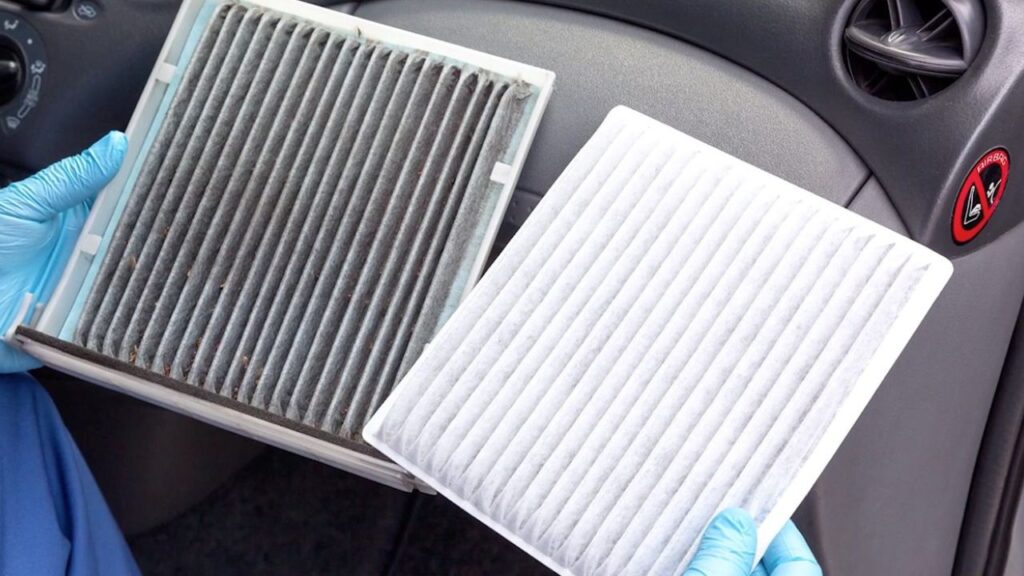
To maximize the lifespan and effectiveness of the cabin air filter in a 2003 Toyota Tacoma, consider the following maintenance tips:
- Regularly inspect and replace the cabin air filter as needed.
- Keep the exterior vents and intake grilles free from debris and obstructions.
- Avoid driving in dusty or polluted environments whenever possible.
- Use high-quality replacement filters recommended by the vehicle manufacturer.
- Follow the recommended maintenance schedule outlined in the owner’s manual.
Regular Maintenance and Replacement
While cabin air filters play a crucial role in maintaining air quality and preserving the 2003 Toyota Tacoma’s HVAC system, adhering to a regular maintenance schedule is essential. Toyota recommends inspecting and replacing the cabin air filter at specified intervals, typically every 15,000 to 30,000 miles or as outlined in the vehicle’s owner’s manual.
Additionally, drivers operating in dusty or polluted environments may need to replace the cabin air filter more frequently to ensure optimal performance.
Conclusion
A cabin air filter in a 2003 Toyota Tacoma serves a crucial role in ensuring occupants’ clean and comfortable environment. By understanding its purpose, importance, and maintenance requirements, drivers can enjoy the benefits of improved air quality and enhanced HVAC system performance.
FAQ
What is the Reason for the Cabin Air Filter?
The cabin air filter is crucial to your car’s heating, ventilation, and air conditioning (HVAC) system. It traps allergens (like pollen), dust, bacteria, and other pollutants before they get pumped out of your car’s air vents.
How Often Should I Replace the Cabin Air Filter in My 2003 Toyota Tacoma?
The cabin air filter should be changed once a year or after 12,000 to 15,000 kilometres. Depending on driving conditions.
Can a Dirty Cabin Air Filter Affect Fuel Efficiency?
Yes, a dirty cabin air filter can restrict airflow, causing the HVAC system to work harder and potentially reducing fuel efficiency.
Does a 2003 Toyota Tacoma Have a Fuel Filter?
We currently carry 5 Fuel Filter products for your 2003 Toyota Tacoma, and our inventory prices range from as little as $23.99 up to $39.99. On top of low prices, Advance Auto Parts offers 3 different trusted brands of Fuel Filter products for the 2003 Toyota Tacoma.
Is It Bad to Run AC Without a Cabin Filter?
Using your air conditioner without an air filter is not advisable since it can permanently harm your HVAC system. Normally absorbed by the filter, dirt and dust can penetrate the air conditioning system and cause severe damage to its mechanical components, frequently necessitating costly repairs.

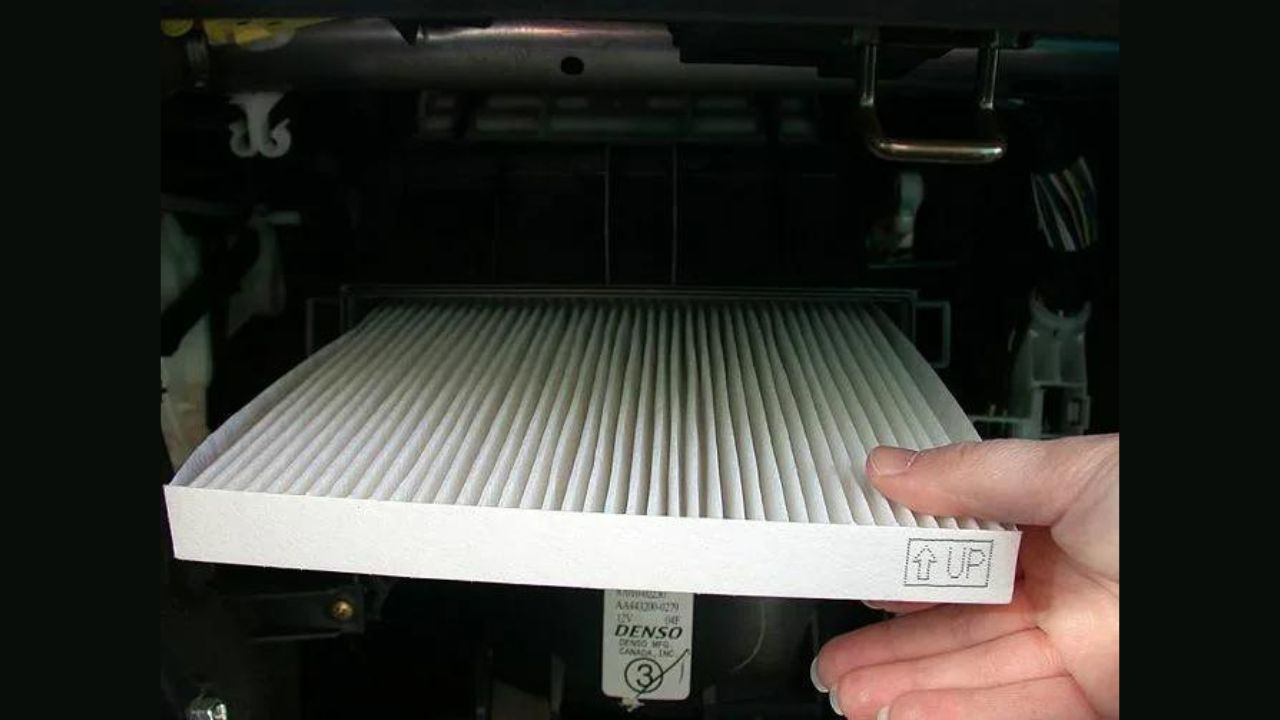
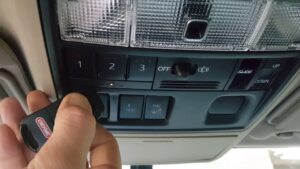
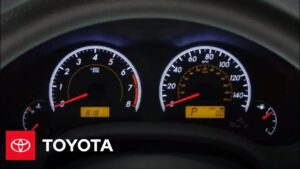
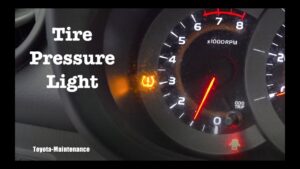
My brother recommended I might like this web site He was totally right This post actually made my day You cannt imagine just how much time I had spent for this information Thanks